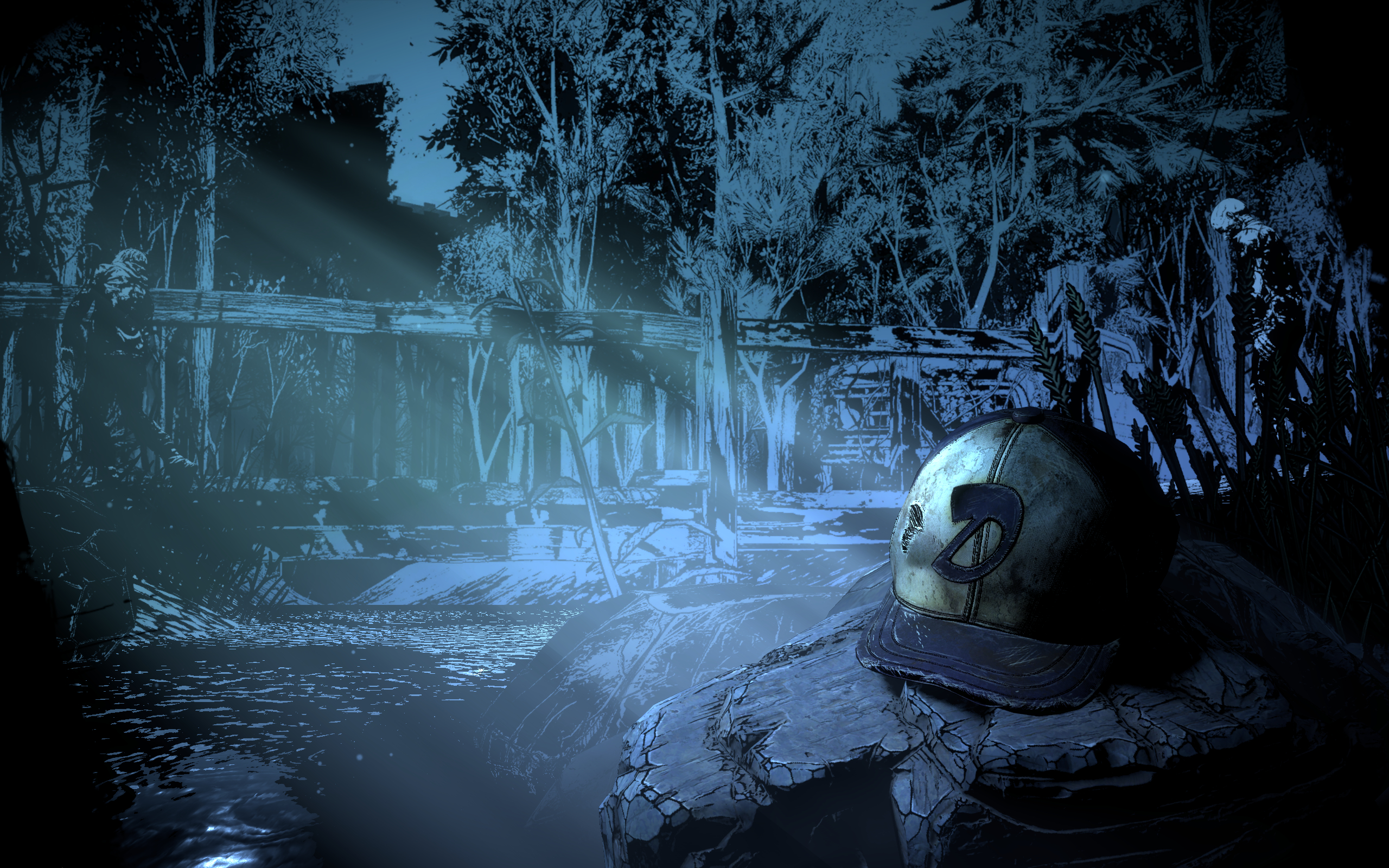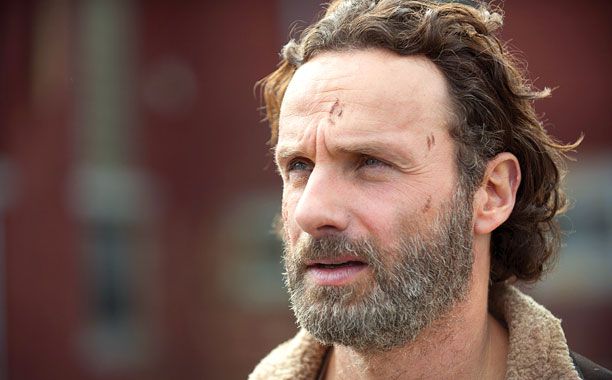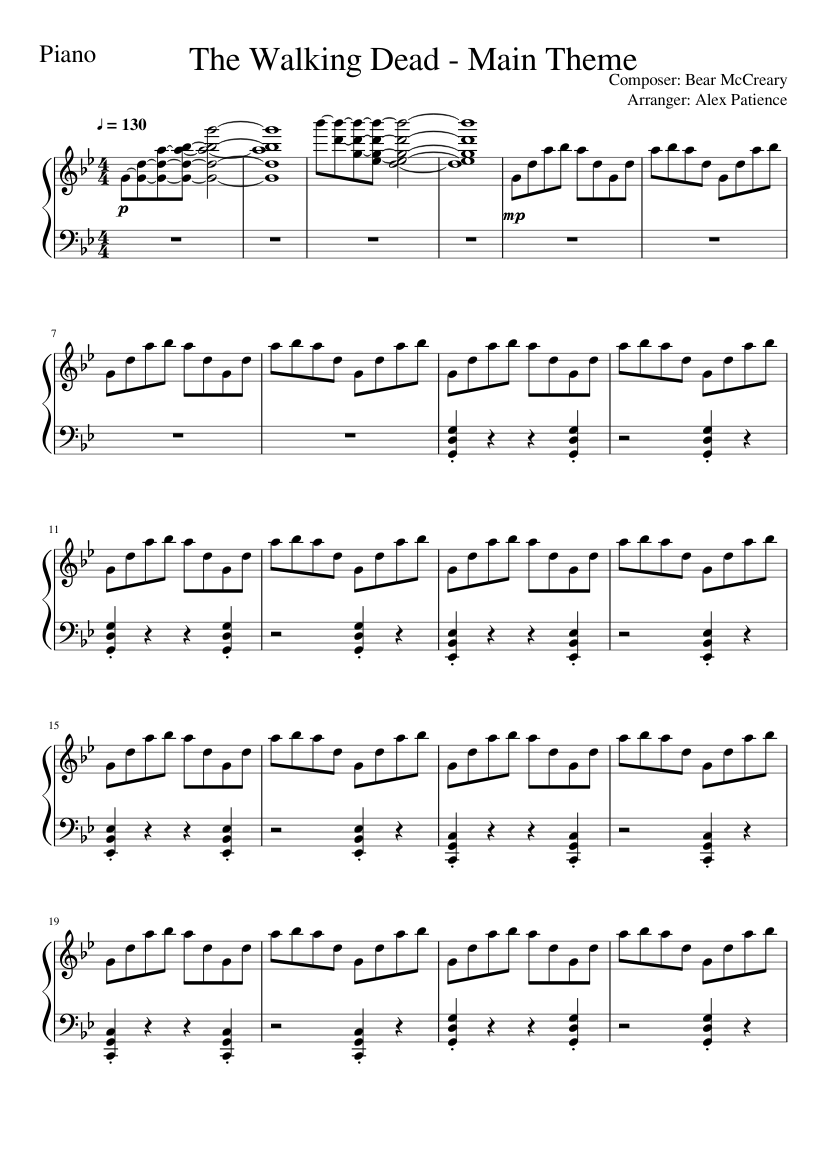
McCreary: In that story arc we really pushed that. Is that exclusive to that group of characters? Or is it foreshadowing the future of your music? During season 7 when the Trash People are introduced, the music takes on very 80s synth vibe. That’s going to be a huge component going forward into season 8. So for a show that oddly enough had almost no themes, now has a half dozen or so solid ones to help keep track of where you are. For example, that allows us to reference music cues from the Kingdom when there’s a scene with Ezekiel. I thought this would’ve been a good opportunity to start using thematic writing more for these factions instead of the people. As you mentioned there’s Alexandria, Hilltop, the Kingdom, the Saviors and so on. They started establishing these factions. Starting a few seasons ago they started a storyline I was familiar with because I had read the comics. But if I would’ve had a theme for Carol, then one for Daryl, Carl and Rick, by now I’d literally have like 50 themes! I mean I couldn’t have anyway, in the first episode there were only 3 characters. To not write a theme for every character. There was a decision made when I was working with Frank Darabont on the first episode. The main reason is there’s just so many characters. I always like cinematic and generally on The Walking Dead, themes are kind of restrained as opposed to something like I do on Outlander. McCreary: I do! That’s a great observation! Good for you. Do you have certain styles you like to keep with certain groups? Or a rustic banjo theme with The Hilltop. There was this kind of majestic sound for The Kingdom. In the season 7 finale, I noticed music cues with nuances in instrumentation depending on which character group came on screen. But generally, I like to keep my experiences as pure as possible and then get into the details after I’ve had a chance to watch it and feel what the audience is gonna feel. In some cases, they gotta tell me things like where things are gonna go so I can sort of plant a seed I can harvest later. Let’s talk about the story arc and the themes. After I watch it, I can sit down with the producers and I go “Okay so tell me about what your ideas are for this. Now the episode I watch isn’t complete but they’re complete enough where I can watch it and get that same feeling. Unless the circumstance requires it, I like to watch the episode. So that feeling you get when you watch the show, while events are unfolding, you don’t know where it’s gonna go.

McCreary: I find on a show like The Walking Dead, is my experience is best when it can mirror that of the audience as close as possible. How do you get to work on an episode of The Walking Dead? Do you get a script? Do you see an episode? Thanks for taking the time to chat with us at Bearded Gentlemen Music!īear McCreary: Thank you! I am actually a bearded gentleman myself!
The walking dead theme song 8 bit free#
We discuss what goes into creating the music for such a high-profile show, how it differs from pop sci-fi genre films, as well as the desire to create music free from nostalgia. Ahead of the eighth season premiere of The Walking Dead, I had the opportunity to talk with McCreary. Making him one of the most sought-after composers in modern film and television.

With compositions ranging from beautiful and romantic to dark and aggressive, McCreary utilizes his music to elevate every story he works on. However, he is probably best known for his original music used in the most-watched cable series, AMC’s The Walking Dead.

Bear McCreary has made a name for himself in Hollywood with his work on Battlestar Galactica, Marvel’s Agents Of Shield, and the Emmy Award-winning Outlander.


 0 kommentar(er)
0 kommentar(er)
